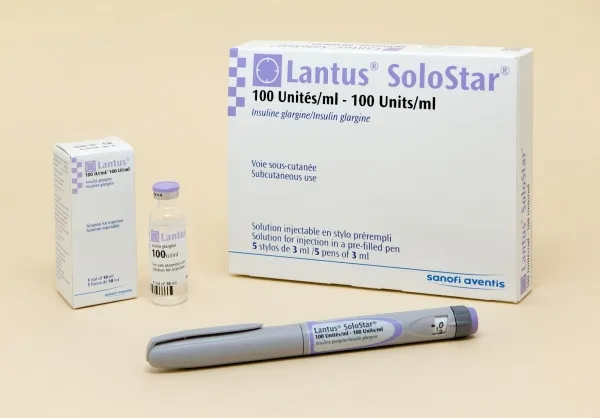The Sanofi-Aventis medicine to treat diabetes called Lantus would increase the risk of cancer, according to new but unfinished studies conducted by experts in Europe.
The actions of the French laboratory fell to the fears that the news mining the sales of a medicine that Sanofi depends to sustain its growth at a time when other drugs face generic competition.
Here are some questions and answers on the subject:
What demonstrates the evidence?
Four retrospective studies of records that cover 301,136 patients treated with insulin in Germany, Sweden and Great Britain suggest that Lantus would increase the risk of cancer, although the data is not conclusive.The smallest study did not find signs of that relationship.
The association was detected particularly for chest cancer, although the absolute risk was small.The broader German study revealed a difference of approximately one diagnosis of extra cancer every 100 people who consumed Lantus, compared to those who received human insulin.
Sanofi points out that previous clinical trials, which represent the gold standard of evidence, indicate that there is no link between lantus and cancer.
Why would Lantus related to cancer?
Insulin treatments can adhere to two receptors, or molecular paths, different on the surface of the cells: insulin and the type 1 insulin growth factor (IGF-1).The former mainly produce a reduction in glucose, while the latter usually induce cell proliferation.
The fact that some artificial insulin versions, called analogues, have a structure that makes them more likely to adhere to the IGF-1 receiver could explain the association with cancer.
The theoretical risk of cancer for insulin analogues has increased in the past.The United States Food and Food Administration (FDA) reviewed documents since 2000 that mentioned evil problems in rodents.
An anterior clinical trial on Lantus also indicated an increase in the progress of retinopathy, an eye condition that is characterized by cell proliferation.
The European Association for the Study of Diabetes (EASD) points out that there is no evidence that Lantus currently causes cancer.At most, it could be that it promotes the growth of cancers that are already present but that were not yet diagnosed.
How will the doctors react?
Diabetes experts recommended their patients not to stop treatment.However, they could consider the use of alternative therapies.
The American Diabetes Association warned of the exaggerated reaction to a series of research writings that, they said, are "conflicting and unfinished."
However, the previous experience of fears with drugs suggests that patients and many doctors will be cautious, especially given the possibility of opting for available alternative treatments, developed by other laboratories.
Specialists in Medicine will discuss the in -depth subject in a special symposium during the annual EASD meeting that will be held in September in Vienna.
Why is Lantus so important for Sanofi?
More than a fifth of Sanofi's current sales face the situation of loss of patents and generic competition in 2012. But Lantus has been considered an important and safe source of sales for approximately the next five years.
Last year, Lantus sales grew by 28 percent, 2,450 million euros (3,430 million pesos) and analysts have been estimating that they would reach 4,000 or 5,000 million for 2012. Those forecastsOptimists now seem unattainable.




